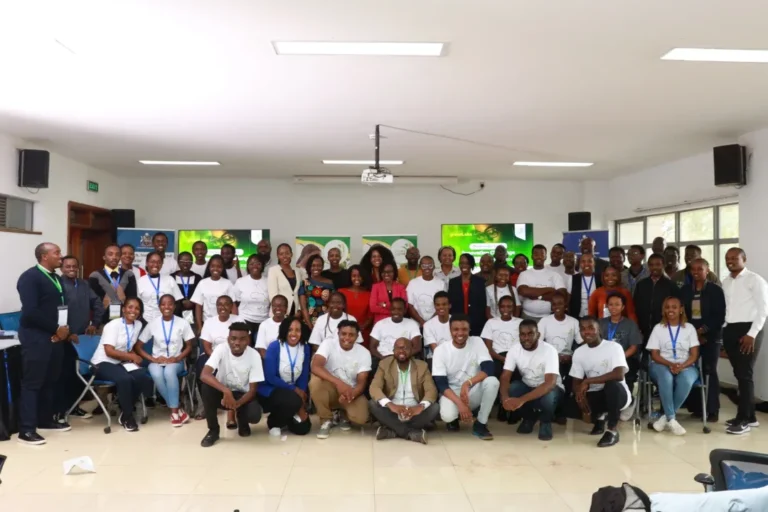Suntrack, Umeme Sense and Mobilab emerged as the winners of the Renewable Energy Innovation Challenge. The challenge is a partnership between Jacob’s Ladder Africa and the University of Nairobi.
SunTrack measures energy consumption and enables individuals and businesses to track their energy consumption to effectively procure solar systems. While Umeme Sense is a smart metering technology that reduces energy wastage by ensuring that industries and commercial buildings are optimising their energy usage through remote and real-time monitoring, load scheduling and load-shedding techniques. On the other hand, Mobilab solar-powered buses are set to revolutionise education in Kenya. Bridging the digital gap, the start up brings hands-on STEM learning to schools, while promoting clean energy and reducing inequality.
The challenge sought to provide a platform for Kenyan youth to develop solutions that leverage renewable energy to address challenges born out of the adverse effects of climate change and unequal energy access in Kenya.
The Renewable Energy Innovation Challenge is an initiative of JLA’s greenLabs Incubation Program. Whereby young people aged 20-25 from across the country were asked to research, develop and submit ideas which innovatively address the impacts of climate change and energy access over a one month period.
During the Demo Day, the final stage of the Innovation Challenge, 24 finalists presented their solutions to judges and guests. The top five finalists pitched their ideas, following which the top three were named winners of the Challenge.
The judging panel consisted of Phyllis Migwi, Country General Manager, Microsoft East Africa, Klaudine Wakasa, Senior Advisor, Mercy Corps, Chebet Lesan, Founder, Bright Green Energy, Nicholus Kimali, CEO, Fedha Electrics and George Mosomi, Platform Associate, Mercy Corps Ventures.
Below are the top three finalists:
HyPro Station, a crowd favourite, is a proposed green hydrogen generation plant. HyPro’s major market is the $900 billion carbon offset market. HyPro secures truck driver jobs, small businesses, homes, hospitals and the community water supply.
All 24 finalists, including the top three, will have the opportunity to be a part of the greenLabs Incubation Program for a period of nine months. Through the program, the entrepreneurs will have access to mentorship, training and cross-learning opportunities
Karen Chelang’at, Chief Innovation Officer, Jacob’s Ladder Africa said; “At the heart of JLA’s mission is the
proliferation of green solutions, with African youth at the centre. Through the Renewable Energy Innovation Challenge, we have been able to mentor and journey with young people from across the country who have come up with impressive innovative solutions, proving that the youth have what it takes to ideate and implement green solutions that solve current and pressing socio-economic issues in the country.”
The effects of climate change on Kenyan communities are diverse and range from impacts on agriculture, resulting in food insecurity to uneven distribution of resources and a lack of access to clean energy for individuals and communities. The Innovation Challenge was launched to foster the conceptualization of solutions that have the potential to become green startups through incubation, and eventually create jobs in the long run.
Professor Mary Kinoti, Director of Innovation and Intellectual Property Management said: “We are pleased to collaborate with Jacob’s Ladder Africa in this endeavour. The University of Nairobi remains committed to supporting entrepreneurship, innovation and commercialisation of solutions that address different challenges in the country and welcomes opportunities for like-minded collaborations.”

